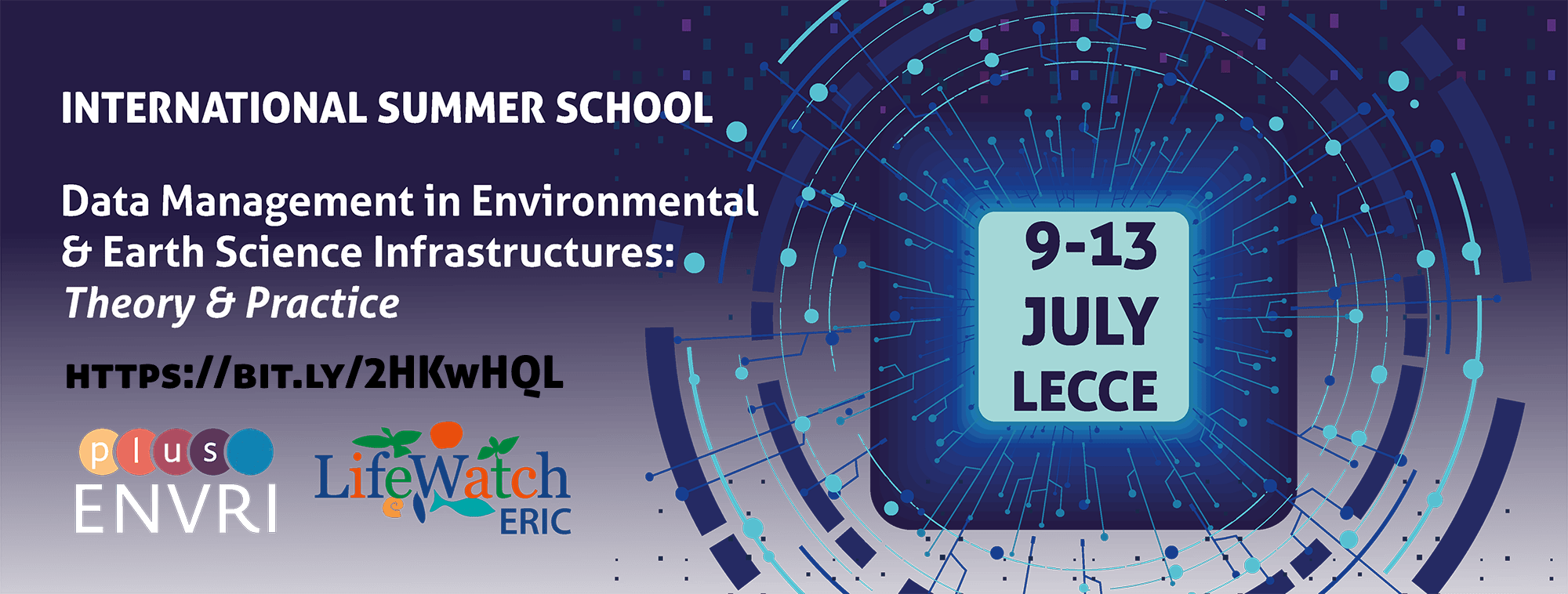International Summer School “Data Management in Environmental & Earth Science Infrastructures: Theory & Practice”
Lecce, 9 – 13 July 2018
In recent years, one of the major challenges in the Environmental and Earth Science has been managing and searching ever larger volumes of data, collected across multiple disciplines. The ENVRIplus project investigated a collection of more than 20 representative environmental research infrastructures (RIs) from different areas. By examining these research infrastructures and their characteristics, a common data lifecycle was identified. The data lifecycle is structured in five phases: Data Acquisition, Data Curation, Data Publishing, Data Processing and Data Use. Many different standards, approaches, and tools have been developed to support the Data Lifecycle. In particular, modern semantic technologies provide a promising way to properly describe and interrelate different data sources in ways that reduce barriers to data discovery, integration, and exchange among biodiversity and ecosystem resources and researchers.
The course is built as a five-day summer school providing a unique insight into the contemporary debate on Data Management in the environmental and earth sciences. Leading scientists and experienced technical specialists will address this topic from different angles, attempting to gather what we consider the most interesting perspectives of our time. We offer a cutting edge and high-quality programme, aimed at fostering a rich and lively intellectual exchange.
Participants:
Early bird registration will close on 15 June 2018. Afterwards, it will still be possible to register, but participants will have to fully cover their own costs.
The International Summer School on “Data Management in Environmental and Earth Science Infrastructures: theory and practice” is organised by the ENVRIplus project in collaboration with the LifeWatch e-Infrastructure.
The school is mainly addressed at staff working in relevant international research infrastructures. The school is also open to PhD students and post-doctoral researchers. Master’s students about to start a doctorate will also be accepted. (max 20 participants).
Participation is free of charge.
